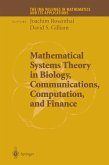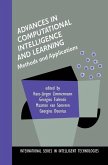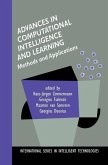The text begins by reviewing the origins and aims of cybernetics with particular reference to Warren McCulloch's declared lifetime quest of "understanding man's understanding". It is shown that continuous systems can undergo complex self-organization, but a need for classification of situations becomes apparent and can be seen as the evolutionary beginning of concept-based processing. Possibilities for complex self-organization are emphasized by discussion of a general principle that has been termed significance feedback, of which backpropagation of errors in neural nets is a special case.
It is also noted that continuous measures come to be associated with processing that is essentially concept-based, as acknowledged in Marvin Minsky's reference to heuristic connection between problems, and the associated basic learning heuristic of Minsky and Selfridge. This reappearance of continuity, along with observations on the multi-layer structure of intelligent systems, supports a potentially valuable view of intelligence as having a fractal nature. This is such that structures at a complex level, interpreted in terms of these emergent measures, reflect others at a simpler level. Implications for neuroscience and Artificial Intelligence are also examined.
The book presents unconventional and challenging viewpoints that will be of interest to researchers in AI, psychology, cybernetics and systems science, and should help promote further research.
In this book I argue that a reason for the limited success of various studies under the general heading of cybernetics is failure to appreciate the importance of con- nuity, in a simple metrical sense of the term. It is with particular, but certainly not exclusive, reference to the Arti cial Intelligence (AI) effort that the shortcomings of established approaches are most easily seen. One reason for the relative failure of attempts to analyse and model intelligence is the customary assumption that the processing of continuous variables and the manipulation of discrete concepts should be considered separately, frequently with the assumption that continuous processing plays no part in thought. There is much evidence to the contrary incl- ing the observation that the remarkable ability of people and animals to learn from experience nds similar expression in tasks of both discrete and continuous nature and in tasks that require intimate mixing of the two. Such tasks include everyday voluntary movement while preserving balance and posture, with competitive games and athletics offering extreme examples. Continuous measures enter into many tasks that are usually presented as discrete. In tasks of pattern recognition, for example, there is often a continuous measure of the similarity of an imposed pattern to each of a set of paradigms, of which the most similar is selected. The importance of continuity is also indicated by the fact that adjectives and adverbs in everyday verbal communication have comparative and superlative forms.
It is also noted that continuous measures come to be associated with processing that is essentially concept-based, as acknowledged in Marvin Minsky's reference to heuristic connection between problems, and the associated basic learning heuristic of Minsky and Selfridge. This reappearance of continuity, along with observations on the multi-layer structure of intelligent systems, supports a potentially valuable view of intelligence as having a fractal nature. This is such that structures at a complex level, interpreted in terms of these emergent measures, reflect others at a simpler level. Implications for neuroscience and Artificial Intelligence are also examined.
The book presents unconventional and challenging viewpoints that will be of interest to researchers in AI, psychology, cybernetics and systems science, and should help promote further research.
In this book I argue that a reason for the limited success of various studies under the general heading of cybernetics is failure to appreciate the importance of con- nuity, in a simple metrical sense of the term. It is with particular, but certainly not exclusive, reference to the Arti cial Intelligence (AI) effort that the shortcomings of established approaches are most easily seen. One reason for the relative failure of attempts to analyse and model intelligence is the customary assumption that the processing of continuous variables and the manipulation of discrete concepts should be considered separately, frequently with the assumption that continuous processing plays no part in thought. There is much evidence to the contrary incl- ing the observation that the remarkable ability of people and animals to learn from experience nds similar expression in tasks of both discrete and continuous nature and in tasks that require intimate mixing of the two. Such tasks include everyday voluntary movement while preserving balance and posture, with competitive games and athletics offering extreme examples. Continuous measures enter into many tasks that are usually presented as discrete. In tasks of pattern recognition, for example, there is often a continuous measure of the similarity of an imposed pattern to each of a set of paradigms, of which the most similar is selected. The importance of continuity is also indicated by the fact that adjectives and adverbs in everyday verbal communication have comparative and superlative forms.
From the reviews: "The work is a brilliant survey of the different theories concerning cognition, including viewing it as a fractal phenomena ... . Andrew's greatest achievement is precisely summarizing all these mathematical works into a single book, from which readers may choose the line of research that seems more appealing to them. ... I recommend this book mostly to researchers, for the utility they could grasp from it. Any student of AI who has some advanced statistical mathematics background can also benefit from this work ... ." (Arturo Ortiz-Tapia, ACM Computing Reviews, November, 2009) "This new book by Alex M. Andrew has been published by Springer in the IFSR International Series on Systems Science and Engineering ... . It deals with the frequently made discrepancy between the continuous and the discrete. ... This book is highly recommended to researchers in artificial intelligence, cybernetics and systems science." (Robert Vallee, Kybernetes, Vol. 39 (1), 2010) "The book begins with an interesting perspective of the origins of cybernetics ... . Each chapter has a useful summary at the end. I thoroughly enjoyed reading this book. It is very well researched, with numerous references to the literature, and to some important debates, over the last 70 years. ... the book is descriptive and readily understandable. I happily recommend the book to relevant researchers in cybernetics, AI, and related fields." (Richard Mitchell, Kybernetes, Vol. 39 (2), 2010)








